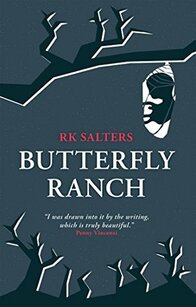The Capital by Robert Menasse translated by Jamie Bulloch
Weaving multiple plotlines and character trajectories, Robert Menasse leads the reader on a poignant, and sometimes farcical, path through the lofty aims and base contradictions of the pan-European project and beyond. Not all strands are resolved – the bungled murder in particular – but this is more about the journey than the destination, and the questions it raises, about nationalism especially, and the representation of Auschwitz in our collective memories.
David de Vriend has to be the most appealing of the characters, and his mental merging of past and present is sensitively handled. Matek, the Christian assassin, is also interesting, but we’re left to guess (although the hints are strong) what becomes of him. Otherwise keeping track of an abundance of men in suits – and three women – can be a challenge.
Brexit gets its moment in the sun, and you can’t help feeling these characters will be glad to see us go. It hadn’t occurred to me how the Commonwealth complicates the European project, although perhaps not to the extent the Vatican does.
Already a prizewinner and bestseller in Germany, this English translation is published by MacLehose, who provided my review copy. It’s rather shocking to think that, as far as I can remember, this is the first novel I’ve read about the EU and my first Belgium-set review.
Butterfly Ranch by RK Salters
They find Tristan on the floor, an empty pill bottle by his side. His partner, Hedda, is nowhere to be seen. Fortunately the trainee nurse is able to purge the Britisher’s stomach with salt water, and father and daughter manage to get him into bed. Determined to get to the bottom of the mystery, Altamont radios for help.
An outbreak of dengue fever at the nearest hospital means no-one can come out to take over from Philomena, and Tristan is still too feeble to move. So, while the nurse attends her patient, cooks for the three of them and launders the clothes, the constable reads the Prospero series, and awaits permission to interview the author. Hedda’s sister arrives from Norway, and then a hurricane threatens to sweep them away.
As you’d expect from crime, RK Salter’s debut novel is a tangle of twists and turns. With flashback chapters, it’s also a love story and an account of Hedda’s vulnerability, expressed through self-harm. Whether describing character or the power of nature, the beautiful writing is the novel’s strength.
I wasn’t so sure about some of the health and police matters, however. The terms coma, unconscious and asleep are used interchangeably and, in flashback, Hedda’s psychiatrist discloses information to her sister without his patient’s consent. I thought it strange that Altamont would still want to carry out an investigation when Tristan was alive and no-one had reported Hedda as a missing person. But these were minor quibbles in a generally satisfying story.
I bought a copy of Butterfly Ranch, after seeing it had won last year’s Rubery Award (Fiction) for self- and small-press published books. Being set in Belize, I was intrigued, having visited several years ago, and glad of the opportunity to extend my list of reading around the world. Published by Matador, a prestigious but pricy self-publishing outfit, it can stand head and shoulders above many traditionally published books.
























 RSS Feed
RSS Feed





















